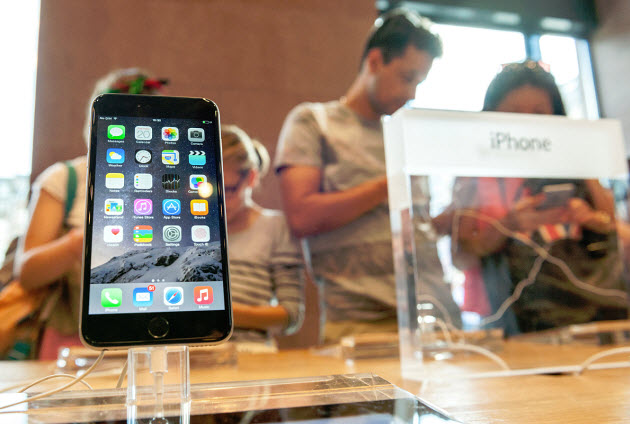“Programmatic” ad purchases are being accepted by the tech company and its partners.
Apple and a slew of partner companies have now made the official announcement that the iAd network has begun accepting “programmatic” mobile marketing ad purchases, in a move that has thrown Apple in direct competition with a range of other smartphone and tablet based advertising services.
The initial intention of Apple to begin its automated iAds program had been leaked a few days ahead of the official launch.
This leak occurred when Rubicon Project, one of the Apple partners, accidentally made an early publication of its press release. However, the official announcement of the iAds mobile marketing advertising came at the end of last week, on Friday, with the official debut of its new automated system. There are a number of other partner companies other than Rubicon Project. They include MediaMath, The Trade Desk, and AdRoll tech companies.
This mobile marketing system will involve the integration of a number of platforms with iAd Workbench tools.
 The tools make it possible to reach consumers in a targeted, cross-device mobile advertising campaign. The focus is specifically for iPhone and iPad users, which are known to be the shoppers that make the largest purchases online over their devices.
The tools make it possible to reach consumers in a targeted, cross-device mobile advertising campaign. The focus is specifically for iPhone and iPad users, which are known to be the shoppers that make the largest purchases online over their devices.
This represents a considerable change in the mobile advertising inventory from Apple. It makes it possible for iAds to be purchased and sold within an open marketplace, which will simplify the process for marketers to be able to purchase audiences. Through the use of programmatic buying, it becomes possible for marketers to be able to use auctions to bid on the placements of their ads. This process has already shown to be popular over other ad networks.
When AdRoll made its announcement as a partner in iAds, it explained that customers will be capable of conducting their campaigns by way of “Apple’s proprietary, privacy minded consumer data sets gleaned through iTunes.” Advertisers will have the tools that they need to build a campaign, to update it, to obtain analytics, and to manage bids throughout iAd by way of the partner third party platforms.
Upon the initial launch of the wearable technology, three locations opened in the US, but they may closing down.
Back when the first limited release of Google Glass occurred, the company opened up what it called “Basecamps” in three cities in the United States, which were New York City, Los Angeles, and San Francisco.
These were, in essence, popup stores that gave Explorers a place to gather and discover the devices.
The Google Glass Basecamps provided a location in which the first users of these devices (nicknamed “Explorers”) could meet, learn more about what they can do with this wearable technology, and obtain other forms of tech support. It also provided Google with the opportunity to create a direct interaction with the users of these mobile devices. These unique store locations were considered to be an important part of the future of the technology.
A recent Phandroid report has stated that Google Glass may no longer have any Basecamps at all.
 The post from Phandroid stated that the locations where the Basecamps had previously existed have now been shut down. This comes at a time in which a growing number of reports are beginning to draw attention to the decreasing interest that these wearables seem to be maintaining. While the storefronts were meant to be a central hub for the people who had forked over the hefty $1,500 to become Explorers and become a virtual guinea pig for this new tech, it doesn’t look as though they will be playing much of a role anymore.
The post from Phandroid stated that the locations where the Basecamps had previously existed have now been shut down. This comes at a time in which a growing number of reports are beginning to draw attention to the decreasing interest that these wearables seem to be maintaining. While the storefronts were meant to be a central hub for the people who had forked over the hefty $1,500 to become Explorers and become a virtual guinea pig for this new tech, it doesn’t look as though they will be playing much of a role anymore.
That said, at the time of the writing of this article, Google had yet to release a comment with regards to the shuttering of the physical store locations for their augmented reality glasses. Some have speculated that the stores are simply being relocated. No official information is available, as of yet, with regards to the closers.
While it doesn’t necessarily mean that this is the beginning of the end for Google Glass, many are commenting about the timing of this move. Google has recently stated that it is committed to the tech as well as to make sure that it is offered to consumers at a more affordable price. As of yet, it is too early to know whether or not this will actually happen or what form it will take.
 The tools make it possible to reach consumers in a targeted, cross-device mobile advertising campaign. The focus is specifically for iPhone and iPad users, which are known to be the shoppers that make the largest purchases online over their devices.
The tools make it possible to reach consumers in a targeted, cross-device mobile advertising campaign. The focus is specifically for iPhone and iPad users, which are known to be the shoppers that make the largest purchases online over their devices.
 The post from Phandroid stated that the locations where the Basecamps had previously existed have now been shut down. This comes at a time in which a growing number of reports are beginning to draw attention to the decreasing interest that these
The post from Phandroid stated that the locations where the Basecamps had previously existed have now been shut down. This comes at a time in which a growing number of reports are beginning to draw attention to the decreasing interest that these 